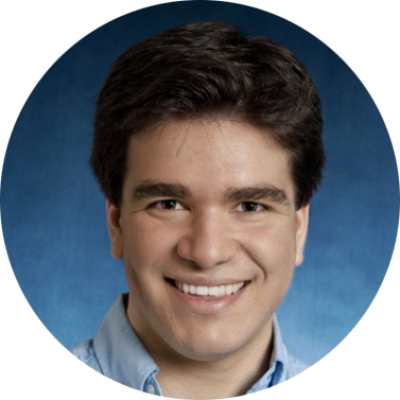
Joshua D. Cohen
Many cancers can be cured by surgery and systemic therapies when detected while they are still localized, yet most cancer types lack noninvasive screening modalities to identify them before they have metastasized to distant sites. Under the mentorship of Bert Vogelstein within the Ludwig Center at Johns Hopkins, my work focused on the development of a noninvasive blood-based diagnostic for the detection and localization of a variety of cancer types. This test, called CancerSEEK, assays the levels of circulating proteins and mutations in cell-free DNA. In a study applying this test to 1,005 patients with nonmetastatic, clinically detected cancers of the ovary, stomach, pancreas, esophagus, colorectum, lung or breast, CancerSEEK tests were positive in a median of 70% of the eight cancer types. Importantly, the specificity of CancerSEEK was greater than 99% when evaluated in a cohort of 812 healthy controls. Additionally, to further improve the performance of CancerSEEK, I developed a novel technological methodology that can more sensitively and specifically detect ultrarare circulating tumor DNA molecules. In summary, this work lays the conceptual and practical foundation for a single, multianalyte blood test for cancers of many types.
Questions & Answers
Why did you choose Johns Hopkins for your work? I chose to come to Johns Hopkins for its unparalleled research opportunities coupled with the exceptionally collaborative and supportive community it fosters for its faculty and trainees. I will never forget the moment when, as a first-year medical student, I emailed 20-plus faculty members inquiring about summer research rotation opportunities — naively expecting to hear back from three or four of them — and then getting an enthusiastic response from every individual I contacted, asking to meet within a few days! To me, this perfectly encapsulates the type of unconditionally supportive training environment that Johns Hopkins provides for its students, which paired with its research excellence and collaborative spirit, makes the institution so special. What does receiving this award mean to you personally and professionally? Do you have any connection with the particular award you received? It is an immense honor to be included among the list of recipients of the Michael A. Shannoff Award, many of whom I look to as scientific role models. I am particularly honored to be included in the company of some of my former M.D.-Ph.D. classmates who have previously won this award. What contributed to your project’s success? (Special skills, interests, opportunities, guidance, etc.) This work was highly interdisciplinary and would not have been possible without the invaluable support of our international team of oncologists, molecular biologists, geneticists, computational biologists and mathematicians. Integrating the expertise from these fields was vital to the project’s success, and I am particularly grateful for all of the support and guidance I received from our team members. In particular, I owe a great deal of appreciation to my graduate mentor, Bert Vogelstein, as well as Ken Kinzler and Nickolas Papadopoulos, for the guidance and mentorship they have provided while in the lab. And finally, I am exceptionally fortunate to have come from a family who has unconditionally supported me throughout this journey — I would not be the scientist I am today without them. What thoughts do you have about Young Investigators’ Day itself, as a celebration of the roles students and fellows play in research at Hopkins? I recall attending Young Investigators’ Day as a first-year student and being awestruck by the incredible scientific discoveries that were being made by my senior peers at Hopkins. Some of those senior graduate students inspired me to pursue my ultimate research project and served as invaluable mentors to me. The fact that the school of medicine has this program specifically dedicated to recognizing research contributions made by trainees is emblematic of the value it places on its students and the collegial environment it fosters. It’s a great honor to be part of this tradition.What has been your best/most memorable experience while at Hopkins? Some of my fondest memories from my time in the lab are of impromptu late night brainstorming or troubleshooting sessions, often over takeout, with my lab mates, many of whom I’m fortunate to also call close friends. It’s unequivocal that these contributed to the success of my research and my development as a scientist. I was fortunate to be part of a highly collegial lab, and this environment not only fostered a productive environment but also one in which conducting research was immensely fun. What are your plans over the next year or so? Graduating, looking for faculty positions, etc.? After completing my graduate work, I’m currently finishing the third and fourth year of medical school. Long term, I hope to one day lead a team dedicated to translating scientific discoveries to the benefit of patient care. Tell me something interesting about yourself that makes you unique. Do you have any special hobbies, interests or life experiences? I enjoy road cycling and am lucky to have my older brother, coincidentally also a Johns Hopkins graduate, in the area. We go on rides together out in Baltimore County to enjoy the well-paved and low-traffic roads, countryside scenery and occasional ice cream shop!